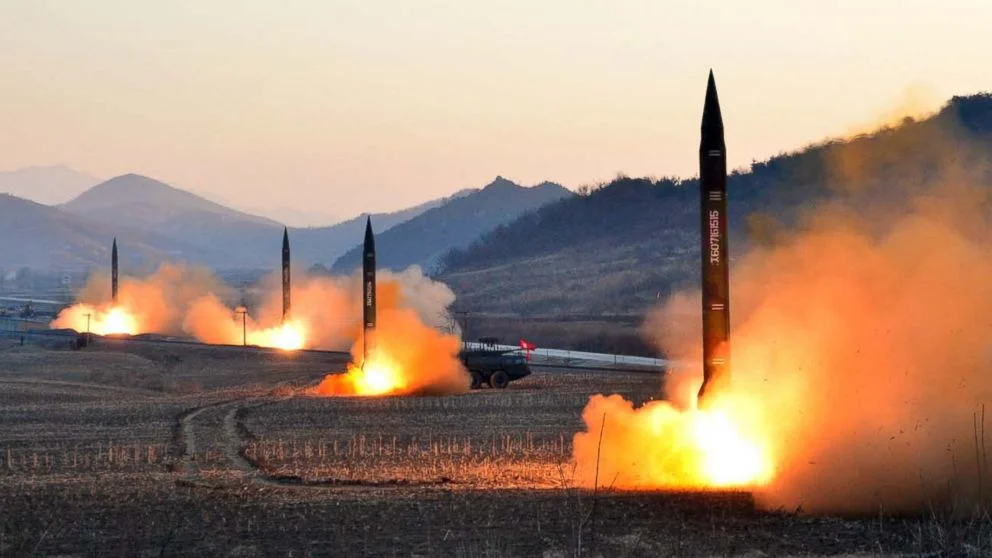In a recent development that has raised concerns across the region, South Korea’s Joint Chief of Staff announced on Thursday that it had detected the launch of a projectile from North Korea. The projectile, believed to be a space rocket, was fired toward the south, prompting heightened security measures and concerns about the implications of this action.
The launch, which occurred around 3:50 am (1850 GMT Wednesday), comes after North Korea had previously informed Japan’s Coast Guard about its intention to launch a satellite into space. While North Korea asserts that it launched a “space launch vehicle” from North Phyongan province, South Korea expressed skepticism about this claim and raised concerns over the violation of international norms.
Pyongyang stated that the rocket’s trajectory took it over waters west of Ieodo, referencing the Socotra Rock in the Yellow Sea. Japan, however, reported that the projectile had crossed Japanese territory, further heightening tensions in the region.
South Korea’s Joint Chiefs of Staff stated that its military is on high alert, closely coordinating with the United States and taking steps to enhance its security posture. The launch was initially reported by the Japanese government, which identified it as a suspected ballistic missile launch.
North Korea’s plans for the launch were communicated to Japan’s coast guard earlier in the week, indicating that the launch window was set between August 24 and 31. In response, Japan took precautionary measures, deploying ships and activating its PAC-3 missile defense system to safeguard its territory.
The situation has intensified diplomatic strains between North and South Korea, as well as concerns among neighboring countries. South Korea considers the launch an “illegal act” due to its violation of United Nations sanctions that prohibit North Korea from conducting tests involving ballistic technology, which has applications for both space launches and missiles.
This isn’t the first time North Korea has attempted to launch a satellite. In May, the country launched a satellite-bearing rocket named “Chollima-1.” However, the launch ended in failure as the rocket crashed into the sea shortly after takeoff. The incident prompted an extensive salvage operation by South Korea involving naval rescue ships and experts to analyze the recovered parts.
The escalating tensions and North Korea’s persistent pursuit of space technology raise questions about the intentions behind these actions. The missile launch comes at a time of strained relations between the two Koreas, with diplomatic efforts to discuss North Korea’s denuclearization repeatedly failing in recent years. North Korean leader Kim Jong Un has declared his country an “irreversible” nuclear power, emphasizing a focus on arms production, including tactical nuclear weapons.
As the international community closely monitors the situation, the rocket launch underscores the ongoing challenges posed by North Korea’s nuclear and missile programs.




